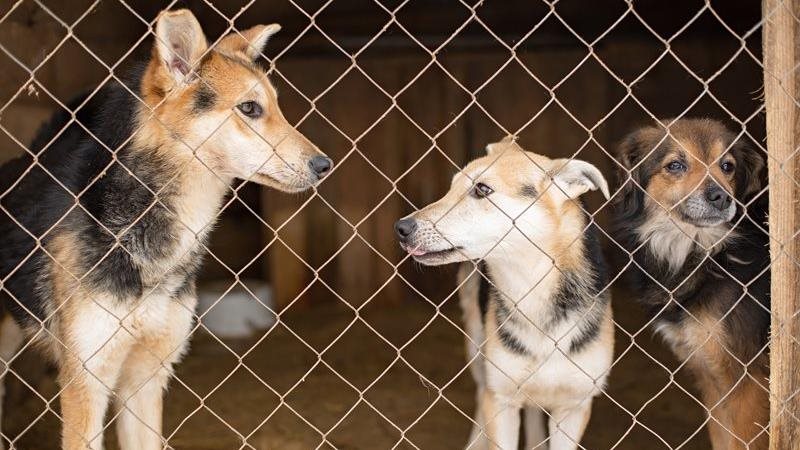
Over the years, many clients have told me that their dog doesn’t need “the kennel cough vaccine” because they don’t use a boarding kennel. Let’s look a little more closely at the condition commonly referred to as kennel cough and more formally known as Canine Infectious Respiratory Disease Complex (CIRDC) by veterinarians.
What causes kennel cough?
Kennel cough, or CIRDC, refers to a collection of germs that may cause respiratory infections in dogs:
-
Bacteria: Bordetella bronchiseptica and Streptococcus zooepidemicus
-
Viruses: Canine parainfluenza virus, canine adenovirus type 2, canine respiratory coronavirus, canine pneumovirus and canine influenza virus
-
Mycoplasma: known as the “jokers of microbiology” because they are bacteria that don’t always behave like bacteria
Depending on the infection, symptoms can range from a runny nose to severe pneumonia.
Common clinical signs of kennel cough
-
Harsh cough that may sound like a goose honking. Occasionally, people will mistake the cough for retching or vomiting. Dogs may cough up clear- to green-coloured mucous during coughing episodes.
-
Sneezing, nasal discharge and runny eyes. These symptoms are very similar to the signs we see in humans when we have a cold.
-
Fever, decreased appetite and lethargy. Some dogs will experience a fever, which reduces their desire to eat and play.
-
Laboured breathing. Breeds with flat faces (like pugs and French bulldogs), older dogs, and those who are overweight may suffer more severe complications. Any dog who is having trouble catching their breath needs to be evaluated immediately by their veterinarian.
Where do dogs catch kennel cough?
Most of these infections are very contagious and spread through aerosol droplets from sneezing and panting, exchange of respiratory fluids during play and contact with surfaces or objects that have been contaminated. Many dogs have a history of playing at the dog park, drinking from communal water bowls, participating in dog sports or conformation shows or spending time in a boarding kennel within the last seven to 14 days before showing clinical signs.
My dog is vaccinated. Can they still catch kennel cough?
The simple answer is yes. CIRDC is caused by several germs, and dogs may be exposed to one or more infectious agents for which they have not been vaccinated or there are no effective vaccines. Dogs who are vaccinated may still show symptoms like sneezing or coughing for a few days. In mild cases, some good old TLC is the most important treatment.
Vaccines can be protective against the more severe signs of CIRDC. The core vaccine protocol for most dogs includes effective vaccines against parainfluenza and adenovirus type 2. Vaccination for Bordetella may be recommended every six months, instead of annually, for dogs who participate in activities where other dogs are present. Your veterinarian can help you determine the best vaccine protocol for your dog’s lifestyle.
When should I take my coughing dog to the vet?
Coughing may be caused by conditions other than kennel cough. Contact your veterinary practice anytime you have questions about your dog’s wellbeing. Ask yourself, “Is this normal for my dog? Are they in distress? Are they acting different than usual?” Your veterinary care team can offer advice and book time for you to see the doctor if there are concerns. Laboured breathing is always cause for urgent care and evaluation.
How Petsecure can help
Kennel cough and other unexpected illnesses can lead to vet visits, diagnostic tests and treatment costs that add up quickly. With Petsecure, you can focus on your dog’s recovery rather than your wallet. Our coverage helps protect you from the financial stress of unplanned care, whether it’s a mild cough or something more serious.
Explore our coverage options and get a free, personalized quote today!
